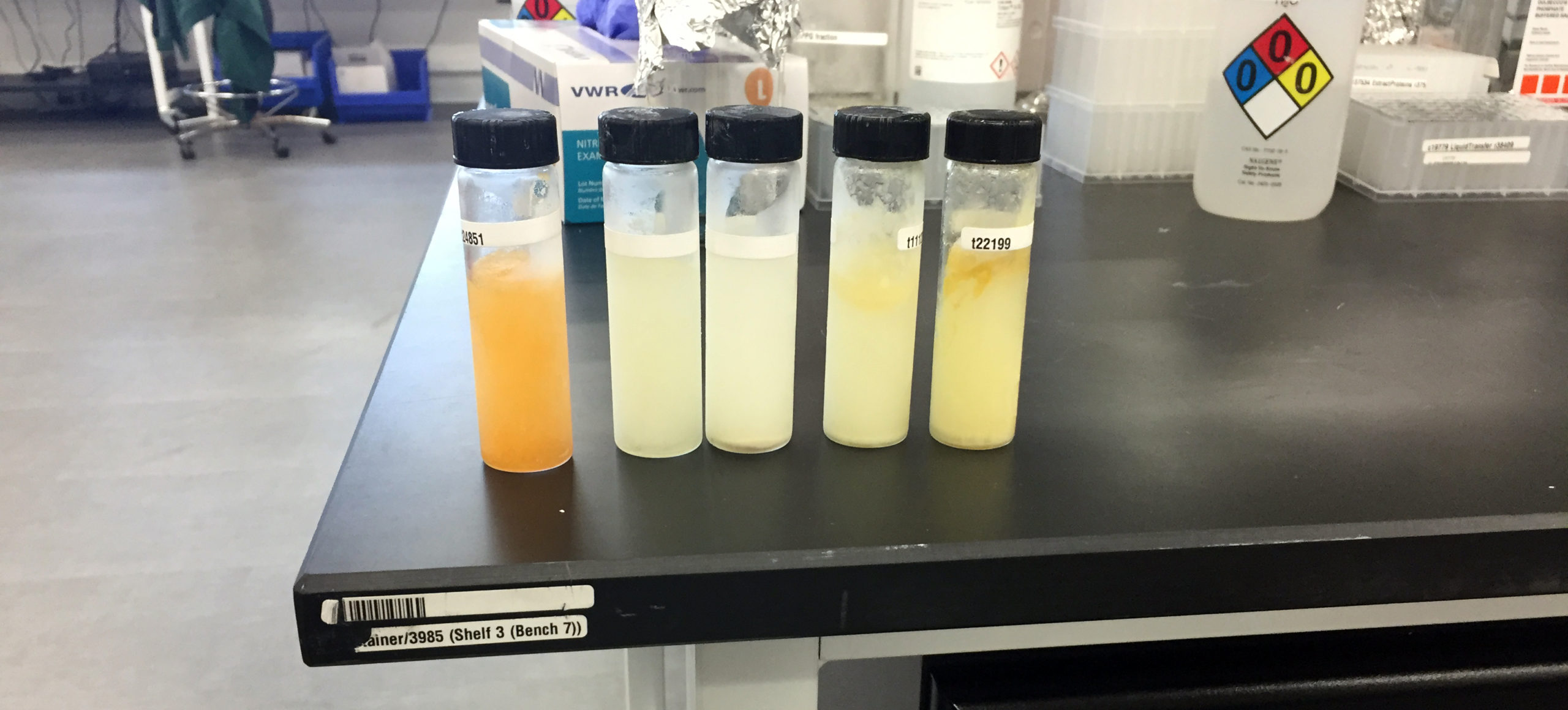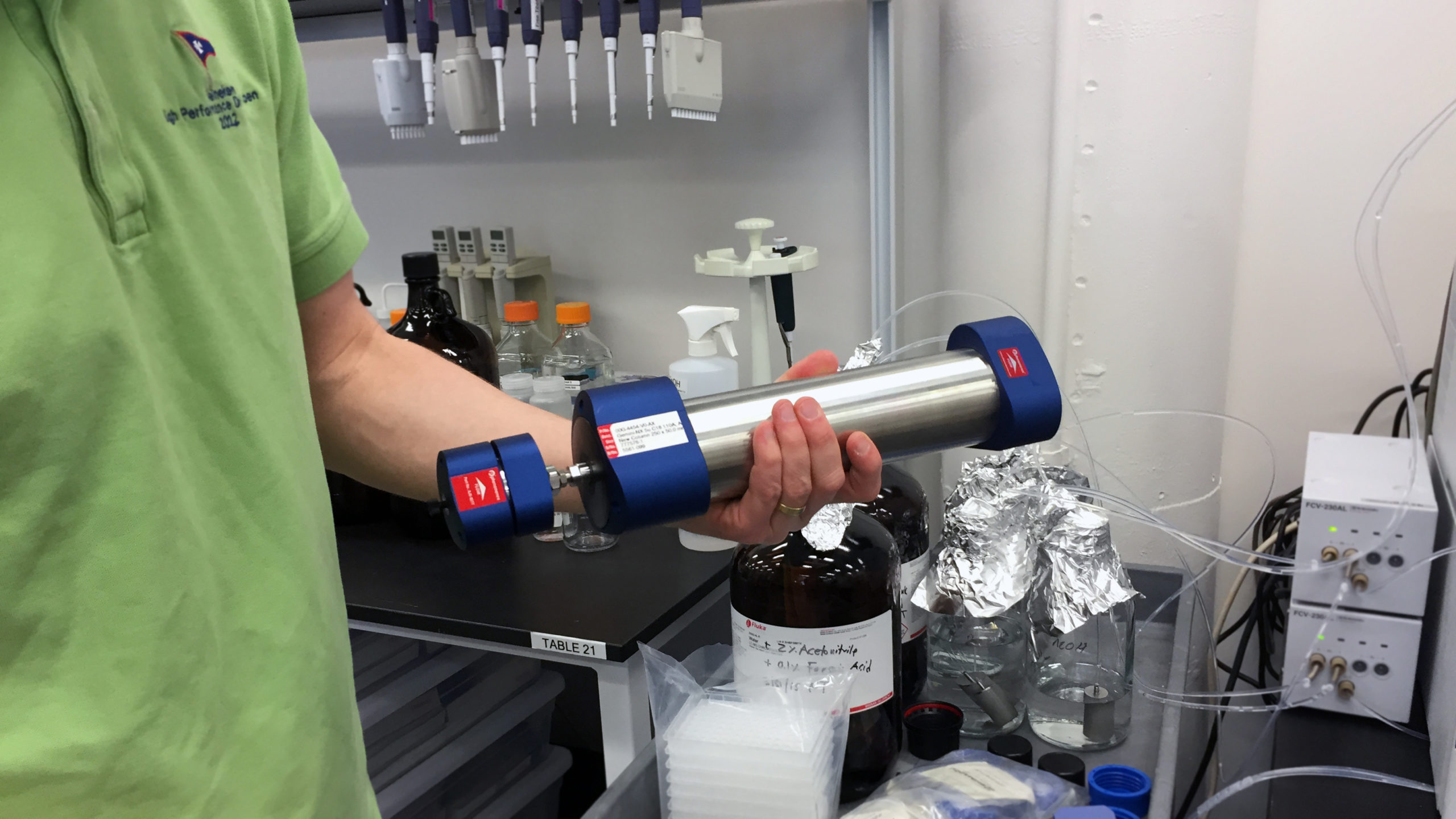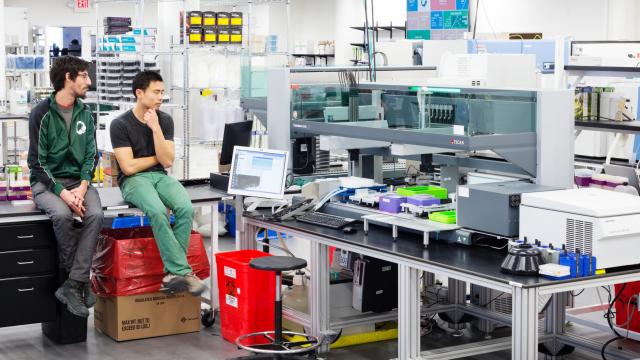Yeast labs have a distinctive smell — a bready scent familiar to bakers and brewers. But the frozen test tube of yeast I held at Ginkgo Bioworks had a fragrance crisp and pear-like. It was definitely yeast, but it had been genetically engineered to smell like no yeast has ever smelled.
Its headquarters — or foundry, as the company calls it — is nestled in an industrial strip of Boston harbour, within walking distance of a brewery and a design center. In a way, this location makes perfect sense. Ginkgo Bioworks is redesigning yeast, which we’ve been using for thousands of years, to become the new industrial workhorse.
In the past year, the company has created a yeast to replace the rose oil for French perfumer Robertet. It’s partnered with several other companies to create flavours and scents to replace those either naturally derived or artificially synthesized. Beer, bread, and wine are the traditional products of fermentation with yeast. But with the right molecular tools, it’s possible to coax yeast into making, well, almost anything, whether that’s rose oil or vanilla or morphine.
The Promise of Synthetic Biology

Vials of yeast engineered for their scents
Ginkgo Bioworks is not the only company that wants to reengineer yeast in this way. There’s also Amyris, which is using yeast to make a moisturiser typically derived from shark liver or olives, and Evolva, which is making the vanillin in vanilla. But Ginkgo Bioworks’ five co-founders, who all left MIT for the company, are a team to be reckoned with. Among them is Tom Knight, a MIT computer science pioneer who took to biology late in his research career. Knight is now best known as the godfather of synthetic biology, a discipline centered around the design of new biological systems. Sound a lot like what Ginkgo Bioworks does? Well, yes.
Synthetic biology has inspired a lot of hope (and hype) in the past decade, but there’s still little on the market to show for it. Ginkgo Bioworks wants to change that — but that means it needs to change synthetic biology from the work of grad students tediously pipetting tiny bits of liquid to that of a streamlined factory.
On my tour of the foundry, which was full of big, expensive machines, co-founder Barry Canton first steered me toward a rather humble-looking computer. But that computer could access a database of over 1000 unique enzymes — chemicals that are at the heart of the company’s production process. The synthesis of any molecule, say a rose-scented one, requires a chain of enzymes, each one playing a part as small as snapping off a particular hydrogen atom. Designing yeast that smells like rose, then, becomes a matter of a choosing the right chain of enzymes and splicing the genes for each into a yeast cell. Different enzymes work better in different conditions — at different temperatures or pH — so it can take some trial and error. Canton says Ginkgo characterised 1000 enzymes last year, and they plan to add another 2500 this year.
The enzyme library is invisible but necessary infrastructure for synthetic biologists. You might think of it as analogous to code libraries, which startup developers can use quickly to slap together an app these days. In fact, code and cells are a common comparison among synthetic biologists. “We’ve adopted the philosophy of treating biology as engineering,” says Canton.
Once an enzyme pathway is designed, it’s time to test it in real live yeast. The genes for the chosen enzymes are spliced into yeast, usually by robots manipulating little barcoded vials — a far cry from painstaking hand labelling you’d see in many academic labs. In the last step, the scent or flavour molecules of interest are passed through a chromatography column — a device for purifying chemicals — and sent to the client for feedback. If anything doesn’t work right, it’s back to the drawing board with new enzymes.

A chromatography column
“The biggest problem in biology today is that we don’t have good models,” says Reshma Shetty, another co-founder at Ginkgo Bioworks. To get the end result of a particular chain of enzymes, we still have to do all messy work of growing the yeast and smelling it. We can’t yet created a computer model of what will happen to the hacked yeast. Ginkgo is sifting through mountains of data for each yeast sample it runs through the chromatography column, and it’s slowly gathering the data that may one day power these models. For Shetty, and many of her colleagues who have backgrounds in both computer science and biology, synthetic biology is the marriage of these two disciplines.
From The Lab to The Market
Shetty admits that in the early days, Ginkgo was mostly a process in search of product. They tried a lot of different ways to turn reengineered yeast into a business, and even at one point received a DARPA and ARPA-e grant to work on probiotics and carbon mitigation. But for now, they have mostly settled on brewing up ingredients for perfumes and foods.
Later this year, they’re licensing their first two yeast-made products to clients: a fragrance and a flavour. More than a dozen others are in the pipeline.
But why would companies want to use yeast to grow molecules already found in nature? Often it’s because the ingredients are expensive, vulnerable to supply shocks like bad weather, or have environmental sustainability issues. There’s also the growing preference for “natural” versus “artificial” ingredients in food. Since a flavour made from yeast is still made by living organisms, it is technically “natural” under FDA guidelines. Making the distinction can honestly be a little silly, but it could still be a smart business decision.
Then there’s also the more exciting possibilities that cross from pure science into art. Christina Agapakis, creative director at Ginkgo Bioworks, talks excitedly about creating novel scents for perfumes that don’t exist in nature. [Full disclosure: Agapakis is a former colleague of mine.] She mentions, for example, engineering a scent based on long-lost flowers preserved in glaciers.
There are a lot of romantic possibilities with synthetic biology. But for now, it is still a young field, and no one is really sure if it can be a viable business. If Ginkgo Bioworks succeeds against the odds of a typical startup, it might just herald a new era in biotechnology.
Picture: Ginkgo Bioworks
